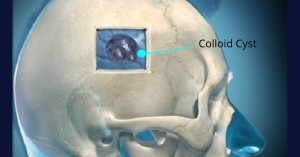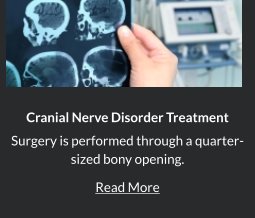Colloid Cyst Newport Beach & Orange County, CA
Treating Colloid Cysts in Orange County
 Colloid cyst is a non-cancerous mucous-like mass that commonly appears near the center of the brain, also called the third ventricle. This slow-growing mass can range in size from a few millimeters to several centimeters and are found in the area of the brain known as the third ventricle. As the size of the colloid cyst grows, it can impede the flow of cerebral spinal fluid (CSF). Build up CSF can result in elevated pressure in the brain. If left undiagnosed and untreated, it can cause hydrocephalus, headache, memory loss, confusion, coma, and even death. Surgery to remove the colloid cyst generally cures a person with this condition.
Colloid cyst is a non-cancerous mucous-like mass that commonly appears near the center of the brain, also called the third ventricle. This slow-growing mass can range in size from a few millimeters to several centimeters and are found in the area of the brain known as the third ventricle. As the size of the colloid cyst grows, it can impede the flow of cerebral spinal fluid (CSF). Build up CSF can result in elevated pressure in the brain. If left undiagnosed and untreated, it can cause hydrocephalus, headache, memory loss, confusion, coma, and even death. Surgery to remove the colloid cyst generally cures a person with this condition.
Robert Louis, MD, a fellowship-trained Orange County Neurosurgeon, is the Director of the Skull Base and Pituitary Tumor Program at Hoag Memorial Hospital in Orange County, California. Dr. Louis has particular expertise in the endoscopic and minimally invasive treatment of benign and malignant brain tumors, sellar and parasellar tumors, and skull base tumors.
Dr. Robert Louis specializes in minimally invasive brain surgery for the treatment of colloid cysts. For appointments, please call (949) 383-4185 or Contact Us.
















